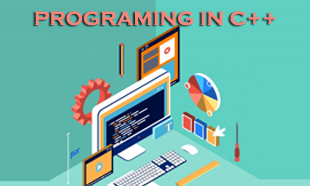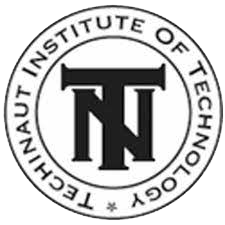0
Master the art of programming with our C++ course at KS Computer Institute, VPO Dorangla, Gurdaspur, Punjab. Learn the fundamentals of C++ programming and unleash your creativity in software development. Join us and code your future!
PROGRAMMING COURSE IN C++
C++ remains a cornerstone in programming, powering everything from operating systems to video games. "KS Computer Institute," a franchise of "Techinaut Institute of Technology" in VPO Dorangla, Gurdaspur, Punjab, offers a six-month Programming Course in C++. This program will equip students with the skills and knowledge necessary to become proficient C++ programmers. This article provides an in-depth overview of the course curriculum, covering topics ranging from the basics of C++ to advanced concepts like object-oriented programming and exception handling.
THE OBJECTIVE OF THE COURSE:
The primary objective of the Programming Course in C++ at KS Computer Institute is to empower students with practical skills and theoretical knowledge in C++ programming. By the end of the course, students will be able to:
- Understand the fundamentals of C++ programming language.
- Apply object-oriented programming concepts to design and develop robust software solutions.
- Implement control structures, functions, and data structures in C++ programs.
- Utilize advanced features of C++, such as pointers, arrays, and templates.
- Develop a deep understanding of inheritance, polymorphism, and exception handling in C++.
- Write efficient and maintainable C++ code for a variety of applications.
COURSE OVERVIEW:
SECTION 1: INTRODUCTION TO C++
This section introduces students to the C++ programming language, its history, features, and applications.
Introduction to C++:Students learn about the origins of C++ and its evolution from the C programming language. They explore its key features, including its support for procedural, object-oriented, and generic programming paradigms. They also learn about the importance of C++ in software development and its role in various industries.
SECTION 2: OBJECT-ORIENTED PROGRAMMING CONCEPTS
In this section, students delve into object-oriented programming (OOP) principles and how they are applied in C++.
Object-Oriented Programming:Students learn about fundamental OOP concepts such as classes, objects, inheritance, polymorphism, and encapsulation. They understand the benefits of OOP in software design, including code reusability, modularity, and maintainability. They also explore real-world examples of OOP in action and its significance in modern software development.
SECTION 3: THE BASICS OF C++
This section covers the basic syntax and semantics of the C++ programming language.
Basic C++ Syntax:Students learn about C++ syntax rules, data types, variables, constants, and basic input/output operations. They explore how to declare and initialize variables, perform arithmetic and logical operations, and format input and output using C++ stream objects.
SECTION 4: WORKING WITH OPERATORS AND EXPRESSIONS
Students explore the various operators and expressions supported by the C++ language.
Operators and Expressions:Students learn about arithmetic, relational, logical, assignment, and bitwise operators in C++. They understand how to use operators to perform mathematical calculations, compare values, and manipulate binary data. They also learn about operator precedence and associativity rules in C++.
SECTION 5: CONTROLLING THE PROGRAM FLOW
This section covers control structures such as conditional statements and loops in C++.
Control Structures:Students learn about if statements, switch statements, and various types of loops (for, while, do-while) in C++. They understand how to use control structures to make decisions and control the flow of execution in their programs. They also learn about nested control structures and the importance of code readability and maintainability.
SECTION 6: USING FUNCTIONS/PROCEDURES
In this section, students learn about functions in C++ and how to define and call them.
Functions:Students understand functions as reusable blocks of code that perform a specific task. They learn to declare and define functions, pass arguments to functions, and return values from functions. They also explore function prototypes, function overloading, and the scope and lifetime of variables within functions.
SECTION 7: POINTERS AND ARRAYS
Students delve into the concepts of pointers and arrays in C++.
Pointers and Arrays:Students learn about pointers as variables that store memory addresses and their applications in dynamic memory allocation, data structures, and function arguments. They explore pointer arithmetic, pointer-to-pointer relationships, and the relationship between pointers and arrays. They also learn about arrays as contiguous collections of elements and how to declare, initialize, and manipulate arrays in C++.
SECTION 8: BINDING DATA AND FUNCTIONS
This section covers the concepts of data encapsulation and function binding in C++.
Data and Function Binding:Students learn about encapsulating data and functions within classes in C++. They understand how to define classes, declare member variables and functions, and create objects of class types. They also explore access specifiers, constructors, destructors, and the concept of object lifetime in C++.
SECTION 9: FUNCTION AND OPERATOR OVERLOADING
Students explore the concepts of function and operator overloading in C++.
Function and Operator Overloading:Students learn about overloading functions and operators to provide multiple definitions for the same function or operator based on different parameter types or numbers. They understand how to define overloaded functions and operators, resolve function and operator ambiguities, and use overloading to improve code readability and flexibility.
SECTION 10: REUSING CLASSES
Students learn about inheritance and composition in C++ for code reuse in this section.
Inheritance and Composition:Students understand the concept of inheritance as a mechanism for creating new classes based on existing ones. They explore single and multiple inheritance, base and derived classes, and access control in inheritance. They also learn about composition as an alternative to inheritance for code reuse and design flexibility.
SECTION 11: VIRTUAL FUNCTIONS AND POLYMORPHISM
Students delve into the concepts of virtual functions and polymorphism in C++.
Virtual Functions and Polymorphism:Students learn about virtual functions as functions declared in base classes and overridden in derived classes. They understand how virtual functions enable runtime polymorphism, allowing objects of different types to be treated uniformly through a standard interface. They also explore pure virtual functions, abstract classes, and the concept of dynamic binding in polymorphism.
SECTION 12: TEMPLATES, EXCEPTION HANDLING
This section covers templates and exception handling in C++ for generic programming and error management.
Templates and Exception Handling:Students learn about templates for writing generic code operating on different data types. They understand how to define function and class templates and instantiate them with specific data types. They also explore exception handling as a technique for handling runtime errors and exceptional conditions in C++ programs. They learn about try-catch blocks, throwing and catching exceptions, and best practices for error handling in C++.
CONCLUSION:
The Programming Course in C++ at KS Computer Institute offers a comprehensive curriculum to equip students with the skills and knowledge necessary to become proficient C++ programmers. By covering a wide range of topics, from basic syntax to advanced concepts like inheritance and polymorphism, the course prepares students to tackle real-world programming challenges with confidence. Graduates emerge with the ability to design, develop, and maintain robust software solutions using the C++ programming language. With these skills, students are well-positioned to pursue careers in software development, game development, system programming, and other fields that require expertise in C++.


